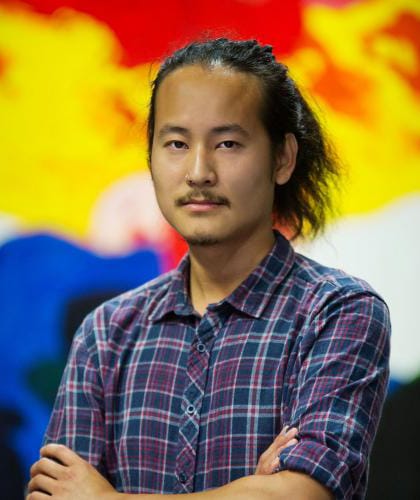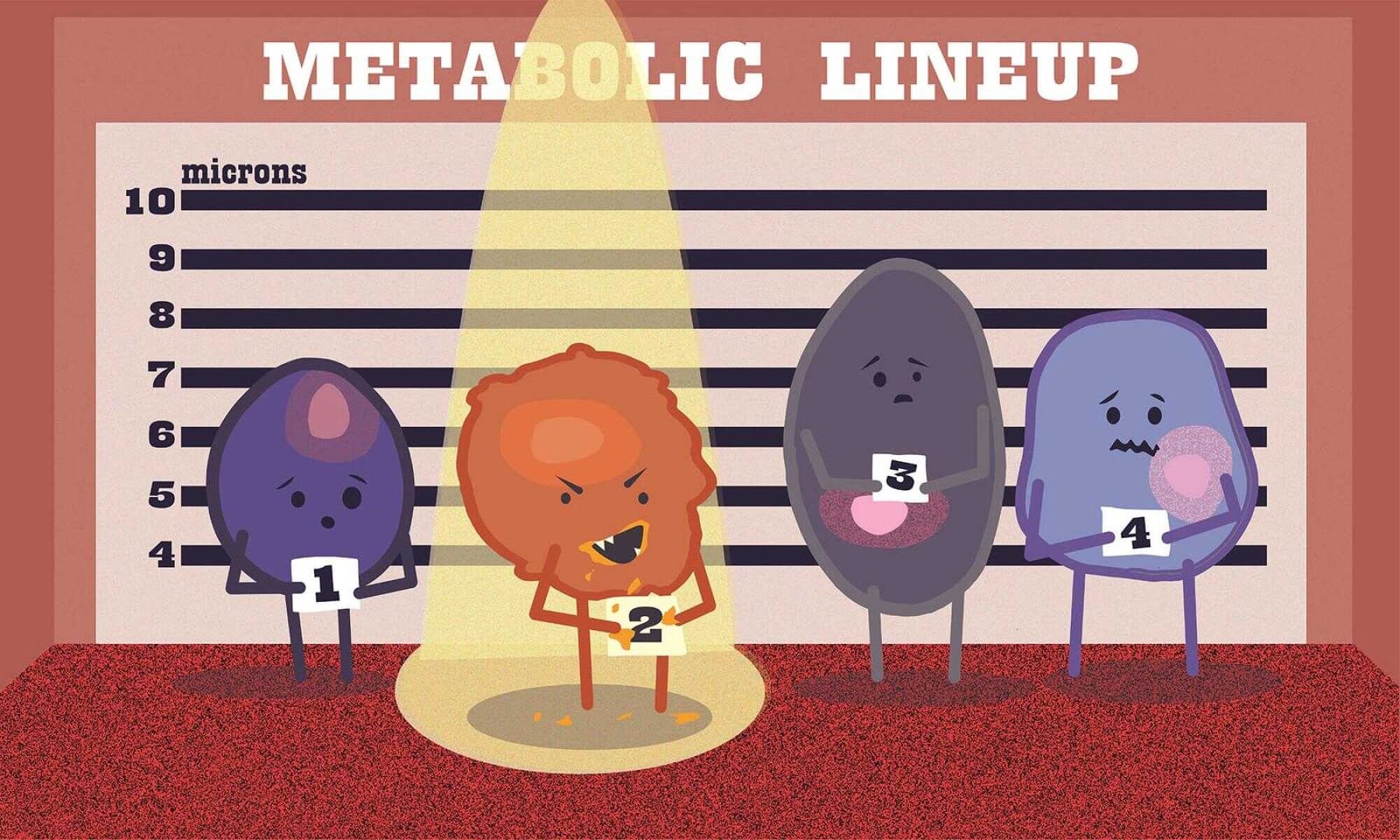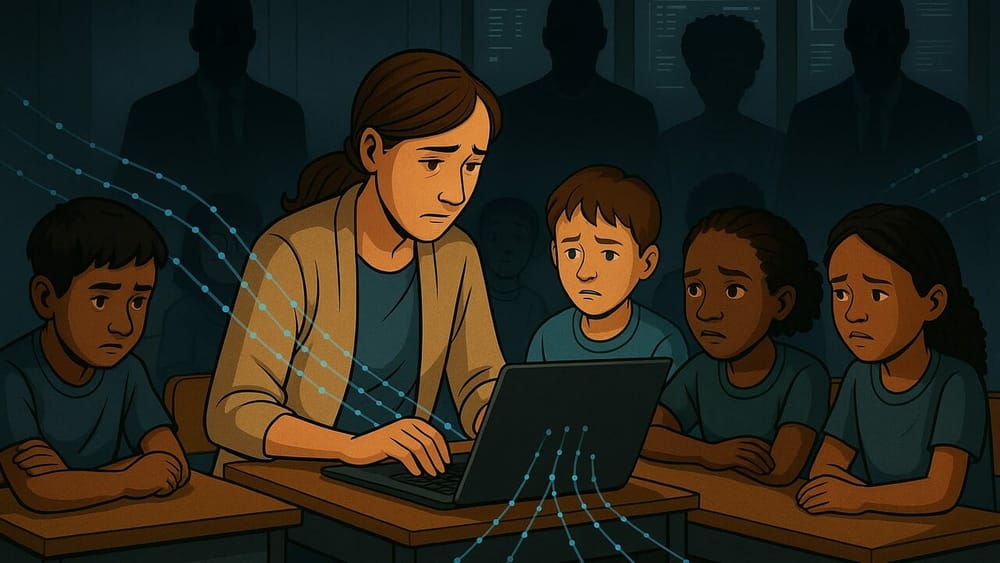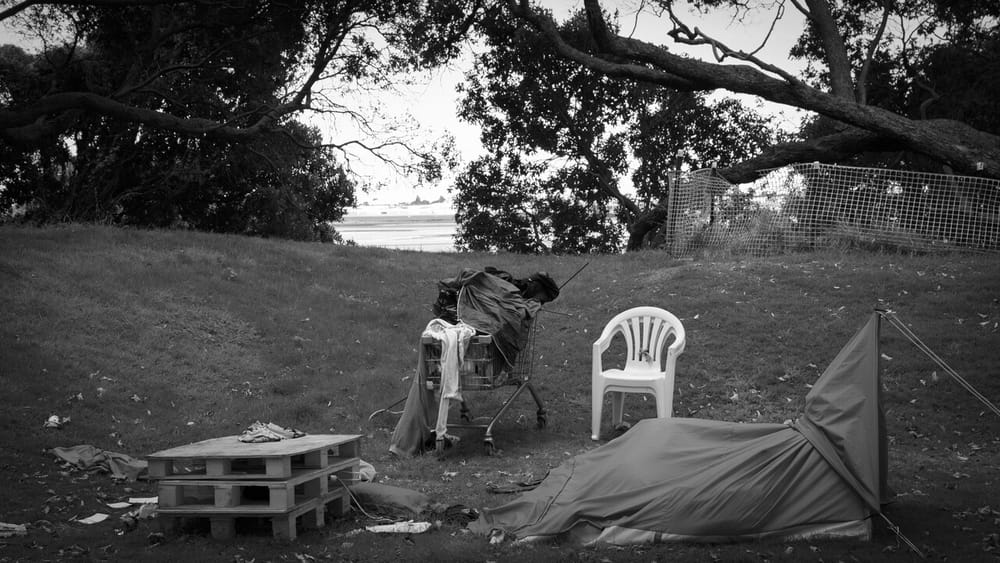Modern problems require modern solutions. The new frontier of solution-based innovation lies in the field of biotechnology. Bioinnovators: The Humans At The Forefront Of Biotech is a series of interviews with the organisations and entrepreneurs at the forefront of changing the world through biotechnology. With each interview, we hope to shine the light on conscious innovators and trailblazers across the globe who are using the natural world, combined with modern technological innovations, to find new solutions to the world’s most pressing problems.
Cancer is projected to affect 30.2 million people by 2040. Unfortunately, the majority of cancers are detected at an advanced stage, which limits the efficacy of treatment strategies. As such, there is a dire need for early cancer detection, a challenge that innovator and systems biologist Dr Francesco Gatto is currently tackling. In 2015, Dr Gatto founded Elypta, a company that uses a systems biology approach to advance detection of multiple cancers at an early stage. We interviewed Dr Gatto on the intricate science behind Elypta, his philosophy on scientific discoveries and what keeps him awake at night.
What was the light bulb moment for starting Elypta?
There was not an obvious one—it was a surprisingly incremental, almost textbook process. The science behind Elypta comes from one of my research projects when I was a graduate student in Jens Nielsen’s lab. The research itself was unforeseen and not initially planned for my thesis, let alone intended for commercial or even practical use. In one of our bioinformatics analyses, we made a fairly random observation that a certain metabolic pathway was very strongly associated with cancer. I talked to a clinician from a cancer hospital close to my hometown and we ended up collecting blood and urine samples to test this association in patients with kidney cancer. Towards the end of my PhD, we discovered that the end products of this metabolic pathway—a bunch of molecules defining a metabolic signature—could be used for early detection of cancer. At the time, I thought this was an interesting scientific finding. To Jens (my PhD advisor), it was the occasion to prompt me to look into innovation—in other words, in commercial opportunities for our research. I guess you could say that it was Jens who had the light bulb moment!
Could you describe Elypta’s vision for cancer detection and treatment?
In simple terms, the earlier you find cancer, the better chance you have of treating it. So far, our vision is not different from the myriads of other organisations; however, our vision is a bit more nuanced. Cancer is a complex disease. This means that it is not just a unique factor “A” causes “cancer,” that is if you get “A” you have cancer. If it was that way, then detecting cancer early would be as simple as monitoring for “A” as closely as possible. Reality is different. The same type of cancer, say breast cancer, can arise in many—but not unlimited—different ways. You could be predisposed from your family. Or you could be a heavy smoker. Or you just aged in a certain way. No two breast cancers are identical. So, how do you detect all of them? You need data on all the possible ways cancer can come about. The blood is rich in such information. Part of that information is genetics. Part is metabolism, the process through which cancer nourishes itself to survive. We monitor metabolism as a layer of information for early cancer detection in the hope that this will pave the way to ever more effective treatments for cancer until we reach a cure.
Why is it so hard to detect distinct metabolite ‘signatures’ associated with certain cancer types in the blood? Is this especially true for early-stage (localised) cancer?
The quick answer is that in the beginning, cancer is just one cell. That is very very small compared to the volume of blood in an average person: about five litres. The other problem is the cancer complexity I mentioned earlier. There are so many distinct ways to start cancer. You cannot just monitor “A.” We identified metabolic signatures in the blood that are very effective at detecting early cancers, evidently because the signatures reflect a metabolic process active very early in many cancers. Yet, we still miss more than half of the cancers. This is because, well, there are many ways to start cancer. The metabolic process that we monitor with our signatures may simply not be needed in all cancers. Frankly, I strongly doubt that there is a single process that is required by all cancers to start, there is no “A” we can universally monitor. We need to stack up the data if we want to find all of them early—our data as well as data from other layers of biological information.
How will these metabolite ‘signatures’ shape the future of cancer detection?
We believe that early cancer detection is a challenge that needs a plethora of relevant data to be fully met. The challenge stems—once again—from cancer complexity. There is no simple factor “A” we can monitor. The keyword here is relevant. Biology is the product of millions of years of evolution that tinkered with chemistry to create biochemical machines of mind-boggling complexity, which we refer to as life. Even though cancer is complex, only a fraction of the complexity that resulted in life is relevant for the manifestation of the disease. Cancer is not as complex as life itself. Within this fraction of complexity, we recognise certain processes to be extremely relevant to the formation of cancer. These are the processes that we should track. For example, we know that cancer leaves epigenetics signatures that one can monitor in the blood. Metabolic processes are another example. Elypta is shedding light on this piece of the puzzle by measuring in the blood and urine what we believe are very prominent actors in cancer metabolism. Our goal is that such metabolic signatures will become integral to a multimodal quest towards universal cancer detection.
When can we expect to get a first glimpse into Elypta’s results from the clinical trials?
Our first trial in kidney cancer is slated for completion in 2023. We will have a few so-called “trial in progress” data alerts in urological conferences—hopefully towards the end of 2022.
Elypta uses a systems biology approach to identify these metabolite ‘signatures.’ Could you explain what systems biology is?
Systems biology is the branch of biology that explains a certain phenomenon as the manifestation of many molecules interacting with each other in networks rather than in isolation. It is particularly apt for studying complex phenomena, that is phenomena that are not readily understandable as “A” causes “B” but rather “A” in combination with “C” and the absence of “D” causes “B.” As I mentioned earlier, cancer is a perfect example of a complex phenomenon. Metabolism is another one, where our food is broken down into small molecules and “digested” in thousands of chemical reactions whose aim—as a network—is to provide the body with energy and material for growth and maintenance. In systems biology, we typically collect a large amount of biological data about the phenomenon we are interested in and put it together using computational and mathematical models.
Who will have access to Elypta’s technology/research?
We collaborate with several hospitals and academic institutions all over the world. We have a very science-oriented approach in Elypta. We publish all scientific research we conduct and disseminate it through open access articles whenever possible as well as in well-known conferences. We promote scientific research using our technology with a sponsorship program accessible through our website. Researchers can apply for subsidised analyses or even for free analyses if the research happens to be of core interest for Elypta.
What other technologies will Elypta incorporate into their repertoire (for example, a rapid-test using a paper strip)?
We are not simply producing laboratory kits to measure the metabolites that end up in the signatures. We are also developing cloud-based software that stores and integrates data from our studies to learn more and more over time how to improve the detection accuracy of cancer. This may lead to much more sophisticated models for predictions that do not simply rely on our metabolic signatures, but for example also on the patient’s age or past medical history. These prediction models can help clinicians to make even more personalised decisions for their patients.
Before Elypta, what motivated you to get into science/cancer research?
As all humans, I am also endowed with the beautiful gift of wonder. I guess I am very sensitive to wonder. In the past, Aristotle would say that all philosophy starts with wonder. Today, I assume you could make the same claim for science. Less poetically and more practically, I would say that my greatest motivator has always been my former PhD advisor, current co-founder, and ever mentor, Jens Nielsen.
What are some misconceptions that you hope to dismantle?
Certainly. For one, you do not need a business background to start a company as a scientist. However, one must be ready to shift as soon as possible from the academic/research mindset to a business mindset. The science is just evidence for a product (or service), and that product must have a client, eventually. One must be ready to receive and incorporate advice from the business world. Second, no one is going to commercialise your research unless you do. Who would be that person? The tech transfer office? That brings me to the third point. If you are a scientist or an engineer sitting on some promising research and want to explore its innovation potential, just do it. You are risking little, and the potential upside could be enormous for you. And maybe society.
What keeps you awake at night?
I sleep quite well! Clearly, Elypta is a venture based on scientific research. One has to come to terms with the fact that biology follows its own rules, the vast majority of which are still inscrutable. We simply cannot run all the experiments in the world before launching a venture—there would be no innovation. This means that any endeavour that relies on some scientific research to eventually succeed is always at risk of not knowing everything that could go wrong. We take every precaution, running experiments of increasing complexity, with the right balance of resources used for a given milestone. Yet, even the most promising drugs may fail their last test before they reach the market. I learned to accept this risk and at Elypta, we have a rational approach towards risk-taking. I try to remind myself and all stakeholders that the only other option would have been to do nothing—no Elypta in other words.Frankly, that appears a much dumber choice.
How would you describe your approach to science? Do you believe in serendipity in the context of science?
I classify scientific research into three categories: application-oriented research, incremental research and anomaly-driven research. I have zero interest in incremental research, which is ironically the most common way to describe scientific research as it consists of scientist A discovering X given what we know of Y, which further propels research in X by scientist B who extends the knowledge of X into discovering Z and so on. It is a rabbit hole. We end up becoming world experts in X, Y, Z only to realise at one point that no one else cares about it. I have been heavily influenced by Thomas Kuhn’s The Structure of Scientific Revolutions, which makes an excellent point about the fact that virtually all revolutionary discoveries in science result from knowledge leaps rather than incremental accumulation of knowledge. At one point scientist A makes a casual observation that makes no sense given what we know of Y. It must be a casual observation. Otherwise, it would be expected in the context of Y; it would be incremental knowledge—she is discovering X. But this casual observation—a serendipitous observation—is an anomaly in the context of Y. The more she digs into that, the less that observation makes sense according to the current theory Y. At one point, she leaps and resolves the anomaly by changing the theory completely—what Kuhn referred to as a paradigm shift. I admire the courage and curiosity it takes to undertake anomaly-driven research because, admittedly, 99.9 percent of these casual observations turn out to be experimental flukes. I also like application-oriented research. The starting point there is not the current knowledge Y. Rather, it is a well-formulated unsolved problem. It is almost a business endeavour. The scientist will identify a problem that if solved would create enormous benefit to one or more stakeholders. Say, patients who develop resistance to the newest skin cancer drug are left without options. Unfortunately, few academic scientists go to great lengths to interview the stakeholders and truly define their unsolved problems. This activity would otherwise be extremely common in market research. Instead, most academic scientists start “application-oriented” research based on the hunch of their research advisor. It would be much easier if they were allowed to talk to, for example, a doctor and figure out what the doctor’s problem truly is. It could change the object of their research dramatically, and the findings may have world-changing applications. This is an approach to scientific research that would most commonly lead to great innovation.
Medical scientific research is not without controversy. From the use of HeLa cells to genome-edited CRISPR babies. What are some ethical considerations you must consider with your work?
There are many ethical considerations in our research and medical research in general and thankfully there are national infrastructures that perform a rather fair work in supervising ethics in research, including ours. Perhaps two aspects are most prominent in our case. When performing research in humans, it is paramount that the participants are aware of the research conducted, the risks and the benefits. We as well as everyone else doing human research make every effort to ensure participants understand this fully and provide their consent in writing. On our side, we design our research projects so that the benefit of research results far outweighs eventual risks for the patients, and again, the above-mentioned national infrastructures vet our thinking and approve it before the study starts. Secondly, the integrity of participant data is of utmost importance for us. At Elypta, by principle, we never collect personal data on study participants directly, and the closest we get to personal data is in pseudonymised form, meaning that we do not own the key that unveils who is who. On top of that, we operate under strict cybersecurity measures to prevent any leakage of even such data, which we consider nevertheless sensitive.
What does ‘biotechnology’ mean to you?
First and foremost, an incredibly exciting field of engineering where we work with nature as the greatest tinkerer on Earth to provide unimaginable and useful solutions to our life.
If you could start another endeavour to solve another global problem, what would the solution look like?
I am interested in senescence, which is the ensemble of all biological processes that determine the gradual systemic deterioration of the human body—in simple words, aging. Cancer is by and large a disease caused by senescence. I believe that it is time we take a step back and address senescence as a health problem, solving not only cancer but also other age-related diseases such as coronary artery disease or Alzheimer’s disease. I wish I had a solution, probably a combination of precision diagnostics and new therapeutic agents. In the end, despite millions of years of search in the chemistry space, evolution has only discovered a bunch of useful molecules for life. I think the best ones are yet to come and biotechnologists are poised to make some pretty exciting discoveries here.
Do you have any advice for our readers who want to get involved?
I am not big on advice but these are things I’d tell my younger self. Do not be scared by science—it is not as hard as it sounds and undergraduate programs around the world are getting better and better at teaching hard concepts to pretty much any background. A degree in biotechnology is today much more accessible than when I was a student just 15 years ago. Once in biotech, you do not even know how many possibilities are or will be opened. Explore; do not pick a topic out of convenience, and do not be afraid to get in touch with the senior researcher—emails are usually public in the scientific papers. Do not work for people you do not like even if their research sounds amazing. Do not think you have all the answers and do not refrain from talking to other stakeholders about your research as openly as possible. If you are ready for innovation, do not hesitate to contact your institution’s innovation office.
What legacy do you want to leave behind?
Frankly, I do not think that I have done that much that deserves a legacy. I am simply hoping to leave a better trace.







